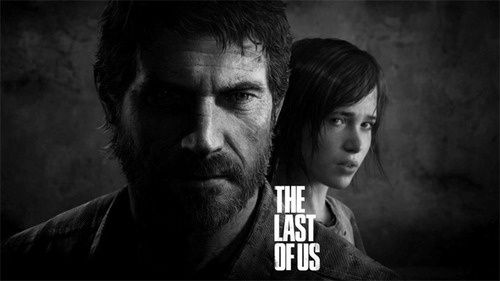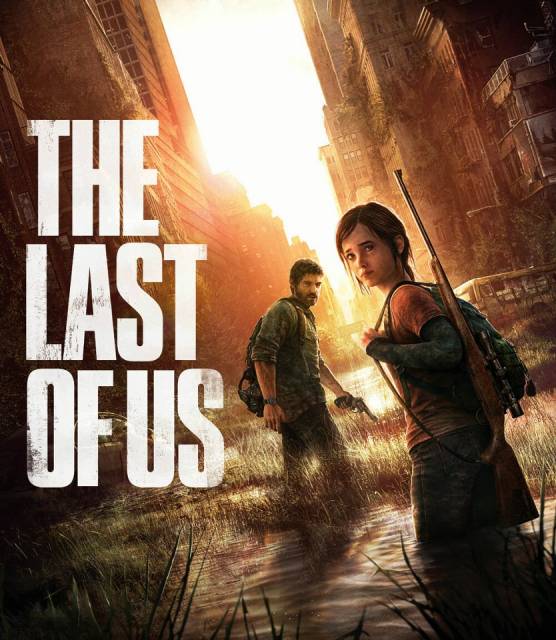
WARNING - SPOILERS AHEAD
Having finished my play-through of The Last of Us yesterday, it's a game that I feel compelled to discuss. I won't be compiling a Default Prime review of this one as Lucas Stephens has already provided his thoughts on the site. But it's a game that deserves to be talked about, regardless.
As noted above, this will be chock full of spoilers. If you haven't played the game yet, don't read this blog entry.
This time, I want to start at the end. It's worth recording my immediate reaction having finished the game. I was at once relieved, disappointed, bewildered, and curious. I was relieved that the tension was over, disappointed at Joel's decisions, bewildered about why he had done what he did, and curious as to how that would change the hopes of the people.
Above all, I was full of thought. And the only other game in recent history that had me pondering it that closely, well after it was over, was Bioshock Infinite. That is excellent company.
But the more I thought about it, the more that the ending made sense, the more I was glad that Naughty Dog has opted to make Joel decide in the way that he did. To wrap things up in a nice, completed package at the end would have betrayed the world that had been created, the one that I had been experiencing for some 15 hours. To make Joel consider the world over his feelings of devastating loss would have betrayed his meticulously crafted character. Because of these, I would not have wanted the ending in any other way.
And this is all thanks to the incredible job at character-building throughout the game. Ellie comes off very believably as a teenager (as care-free as one could be in this game's world), but becomes increasingly forlorn and downtrodden as she is forced to kill to get by, and faced with what she sees to be as an imminent sacrifice of herself for the greater good.
As for Joel, after the absolute agony that he is put through in the opening sequence, we later find out through conversation that he had spent at least part of those 20 years after the incident as a "bad guy." He keeps referring to having done bad things. When coming upon the Hunters for the first time, he even mentions having been "on both sides."
It's a strange thing to be put into the shoes of someone who seems so morally deficient, but The Last of Us paints a world that is morally deficient. In that contrast, what is a "bad guy" here? All you see here are different groups of people all trying to achieve the same thing in different ways: survival. You could say that one type of person is "better" because perhaps they value human life more. But, by that reasoning, what if those who are "worse" are thriving more easily as a result of their actions? Is their method still inferior?
It's really not. It may seem more extreme, but certainly not inferior. It's a return to tribal living. Aside from the out-of-control infected, all other people that Joel and Ellie come across are simply different tribes with their own systems of survival. And Joel is the glue, as he has found himself - in some way - involved on all sides of the fence (other than the infected, of course, and the cannibals).
Joel is not a good guy. He's a damaged one. He lost his daughter, he lost Tess, and he's experienced other levels of loss that don't necessarily involve death. He's shut off, clearly not willing to discuss any parts of any of it. "Things happen, and you move on."
But as the game progresses, he and Ellie become increasingly attached. He's the father she never had. She's the daughter he'd lost 20 years prior. But Ellie is more comfortable with the fact that her purpose serves a larger good than herself. Joel is not willing to grasp that. He eventually allows himself to open up to Ellie, and that vulnerability makes him absolutely unwilling to go through yet another devastating loss.
There's a review from Philip Kollar on Polygon that riffs a bit on how he has trouble coming to terms with Joel's willingness to commit vast amounts of murder, especially towards the end. I generally enjoy Mr. Kollar's reviews very much, but I find myself at odds with his view on this aspect. And I also find myself a bit surprised at how deeply he let that bit affect the game's score.
I find that The Last of Us did a superb job of showing that Joel is a cold person, but not emotionless. He doesn't want to discuss pain, but if you threaten his cub, he is set loose. The further that the game dives, the more attached he becomes to Ellie, and the more ruthlessly he battles to defend her. And that ultimately brings us to a scene that is becoming famous, where Joel brutally murders a doctor with his own knife when he was about to operate on Ellie. It's the culmination of Joel coming unhinged, blind to everything and everyone other than Ellie as he is desperate to avoid yet another loss, desperate to avoid more decades of suppression and escape.
And finally, the scene with Marlene. This is the one that gets into Joel's head. There's a moment where Marlene says "This is what she would want," referring to the idea that, if asked, Ellie would opt to give herself up to the doctors if it meant the possibility of a cure. And you can clearly see that Joel believes Marlene when she says it, and even considers it for a moment. But then, blind with the fear of loss, he makes his choice, shoots Marlene, and lies to Ellie, telling her that the doctors didn't need her anymore, that there were dozens of immune people and they hadn't helped.
And the whole thing leaves off with Joel swearing to Ellie that he's telling the truth.
That's the moment that set off that array of emotions: relief, disappointment, bewilderment, and curiosity. But after I had filtered through those immediate feelings, it settled in satisfaction. I can now take a step back and feel comfortable that Naughty Dog had carefully crafted these characters, and let them exist consistently and believably in the harsh world that they had built.
Tom McShea's Gamespot review also received a bit of flack for its "harsh" 8.0 score (let's not forget that an 8.0 is a GREAT game, guys). But I find his negative points rather defensible. There are technical issues on hand, specifically with the combat. Enemies don't notice AI partners in any way, and it breaks immersion. Ellie can be chatting away at a time when even creeping quickly would cause too much sound, but it doesn't alert the clickers. She can be standing right in front of a roaming hunter and he won't notice her.
Of course, if those moments did alert the enemies at those times, this game would be a lot less fun to play. So it's a trade-off of immersion for fun factor at times. In my opinion, it's a worthwhile trade-off, but I can see the complaint.
Again, I'm not formally reviewing the game, but as I gather my thoughts on it, I'm confident that I would have scored this game quite high, at least as high as any game I've played yet this year. Yes, there are AI quirks, but as I noted, I feel that the trade-off is worthwhile. I find that this game was crafted around creating a world, telling a story, and building characters, and that it pulled all three of those aspects off immaculately.
More than any other time so far this year, I found myself very reluctant to turn the game off after a long play session. Once I'd started, I had to see Joel and Ellie through to the end. It stuck with me while playing and it's sticking with me well after. In the end, I don't feel that any of the negative technical issues in the game actually adversely affected my experience. There are those who understandably (and again, defensibly) disagree with me, but in my book, The Last of Us is a masterpiece that eclipses all of the already outstanding work that Naughty Dog has put forth until now. I can't wait to see what they do next.

Log in to comment